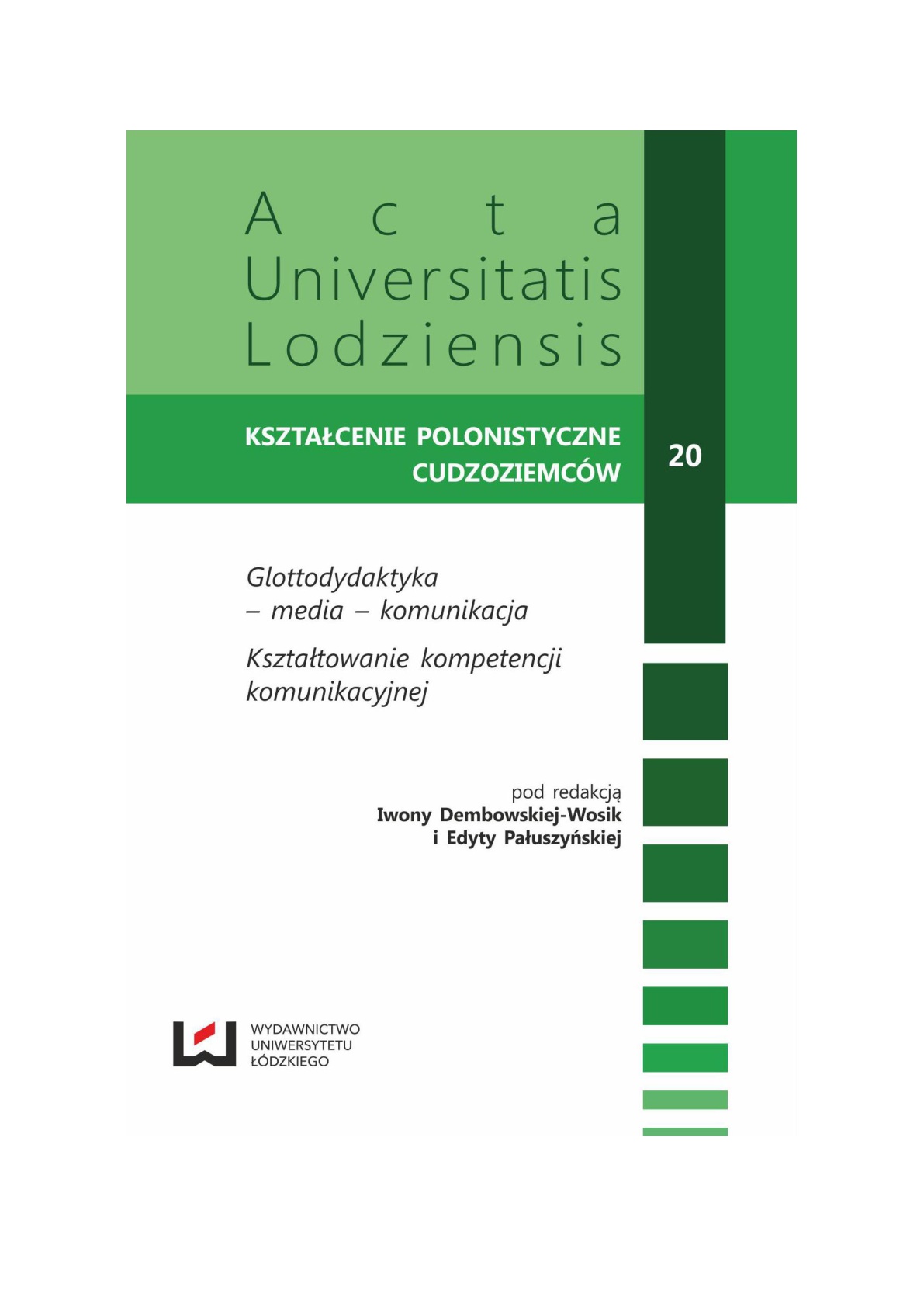ROLA LEKSYKI W KSZTAŁTOWANIU KOMPETENCJI KOMUNIKACYJNEJ CUDZOZIEMCÓW (NA MATERALE JĘZYKA POLSKIEGO I SŁOWEŃSKIEGO)
THE ROLE OF VOCABULARY IN DEVELOPING THE COMMUNICATIVE COMPETENCE IN FOREIGNERS (IN POLISH AND SLOVENE)
Author(s): Bożena Ostromęcka-FrączakSubject(s): Foreign languages learning, Lexis, Semantics, Language acquisition, Western Slavic Languages, South Slavic Languages
Published by: Wydawnictwo Uniwersytetu Łódzkiego
Keywords: communicative competence; lexical competence; semantic competence; false friends; minimum vocabulary;
Summary/Abstract: The author shows the role of vocabulary in the process of developing the communicative competence in foreigners. She takes notice of “false friends”, which constitute a fair amount of the basic vocabulary. For Polish and Slovene this amount oscillates around 10%. If international words and the vocabulary inherited from the Proto–Slavic language were not taken into account, this amount would rise to 24–25%. The researcher gives examples of how false friends cause interference in communication, misunderstandings, or humor. In the process of developing the communicative competence in foreigners, one must also pay attention to collocations. Every language includes words that are non-existent in other languages. These words often express ideas specific to the given culture and the collective experience of the people who speak the given language. Among these, we can find the so called ethnologisms, historisms, and culturisms, which can only be taught through description.
Journal: Acta Universitatis Lodziensis. Kształcenie Polonistyczne Cudzoziemców
- Issue Year: 2013
- Issue No: 20
- Page Range: 23-31
- Page Count: 9
- Language: Polish

